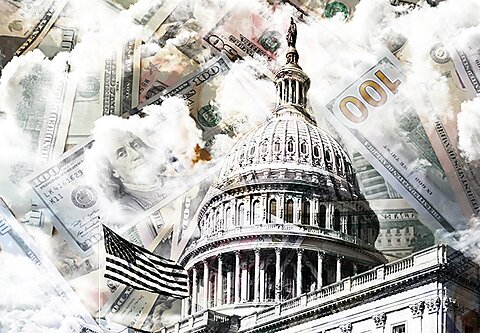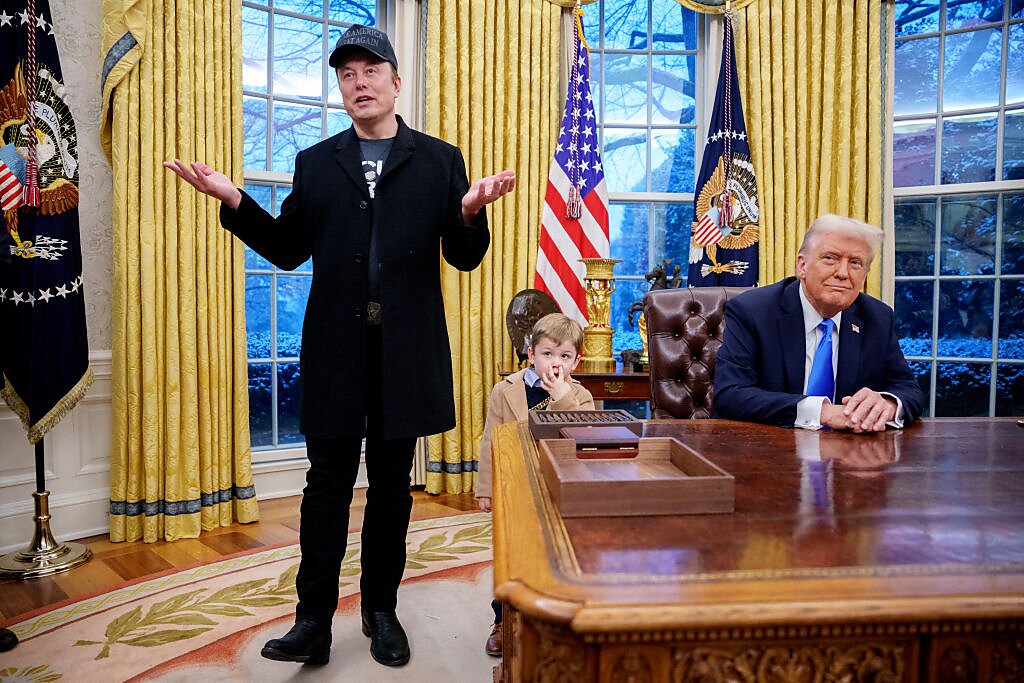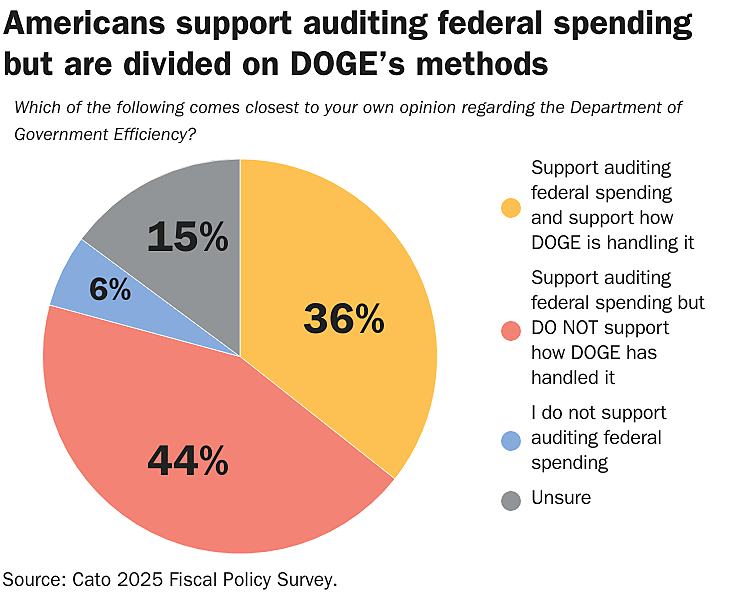Dominik Lett
While Elon Musk’s Department of Government Efficiency (DOGE) has rightfully drawn attention to some pretty silly and wasteful spending, it has overpromised and underdelivered on verifiable spending cuts. This should not be a surprise. Substantial deficit reduction by unilateral executive decree was never a realistic outcome, given that Congress holds the power of the purse.
Nonetheless, the original mission of DOGE to downsize government and eliminate wasteful spending remains as relevant as ever. That’s precisely why Congress needs to take the reins and embrace big, bold spending cuts via reconciliation and presidentially initiated rescissions.
DOGE Will Not Close the Deficit and That’s Okay
Back in October, Elon Musk set the spending cut target at $2 trillion. That was quickly walked back to $1 trillion. Over the last few months, DOGE has had some modest successes, eliminating billions of dollars in government contracts and shrinking the federal workforce by about 12,000 personnel on net (closer to a 130,000 personnel cut in gross). At the same time, DOGE has suffered several major legal setbacks and self-imposed embarrassing blunders. The cumulative result? Elon lowered DOGE’s estimated savings again. This time down to $150 billion.
Unfortunately, even that $150 billion claim is optimistic. Itemized, verifiable cuts (those with receipts) sit at just $63 billion. Many of these receipts lack detail, contain errors, or otherwise have excessive savings claims that make the topline figure suspect. Per AEI’s Nat Malkus, accounting for clerical errors and inflated contract values roughly halves the claimed savings from contract elimination. The final tally of cuts could be slimmer when all is said and done.
By any clear-eyed account, Elon and DOGE are failing to meet their objective to deliver major spending cuts. Look no further than federal outlays, which today are about $135 billion higher than they were last year, ironically close to the amount DOGE claims to have saved. With high bond yields driving up the cost of borrowing further, deficits sailing past $2 trillion this year are a foregone conclusion.
Last month, some Republican legislators seemed to be under the impression that DOGE would do the hard work for them, partially leaning on hopeful DOGE savings to justify a discretionary spending deal that continued Biden-era spending levels. Americans and legislators must dispense with the notion that DOGE will fix the deficit.
All Roads Lead to Congress
Americans want spending cuts now. Recent Cato polling suggests that Americans believe that 59¢ of every $1 the federal government spends is wasteful. Moreover, Americans believe that spending cuts are pro-growth and preferable to tax increases for balancing the budget. Critically, Americans agree with the DOGE mission by overwhelming numbers. What they don’t agree with is how it has been handled.
DOGE has done Congress a massive favor. They have elevated the conversation over wasteful spending to a national level, albeit in a haphazard, sometimes error-prone manner. Now, Congress can finish what DOGE started, take leadership on budget policy, and deliver on substantive fiscal reform.
Conveniently, the House is planning on marking up reconciliation in the coming weeks, a fast-track process Republicans are using to enact Trump’s agenda. If you ask Americans, they believe the 2017 tax cut extension should be paired with spending cuts, not financed by adding to our already massive federal debt.
Congress should listen to its constituents. Restraining the growth in mandatory spending, including major entitlement programs like Medicaid and Medicare, can offset tax cuts, shrink the size of government, and slow a coming fiscal catastrophe. My Cato colleagues Adam Michel and Chris Edwards put together a list of low-hanging spending reforms legislators should consider.
Simultaneously, the Trump administration plans to send Congress a separate, very modest $9 billion rescissions package, proposing to cut funding for PBS, NPR, and foreign aid. As the graph below shows, a $9 billion cut is just 1 percent of all unspent, unobligated funds for FY2025. That’s hardly a major cut to discretionary spending.
Still, the rescissions package is a welcome change to a budget process in Washington that otherwise tends to continue the status quo (or actively make it worse). In the 70s, 80s, and 90s, presidents proposing to rescind funding was a more regular occurrence, and they saved taxpayers billions. Reevaluating priors and frequently trimming spending are both commonsense features of good budgeting.
Congress should add significantly to this rescission proposal. It is better to pass cuts through rescissions, which legislators can have a hand in crafting, than to have a freewheeling executive branch unlawfully impound Congressionally approved funds.
The Trump administration, too, should follow up this rescission package with additional spending cuts. Cutting low-priority spending should be a routine feature of the budget process, trimming as we go, rather than waiting for a fiscal catastrophe to force sudden austerity.
Congress has a narrow window to reassert control over the budget process and restore some measure of fiscal sanity. DOGE has lit the fuse by bringing attention to the bloated, mismanaged state of federal spending—but it’s ultimately up to Congress to carry the torch. That means embracing rescissions and using reconciliation as originally intended, a mechanism to reduce deficits. Anything less is complicity with a spiraling fiscal crisis, invariably slowing growth, adding to inflation, and raising interest rates.
The intent and spirit of DOGE were excellent, but it fell far short of its goals. DOGE was never going to close the deficit without Congress. To the extent that DOGE’s targets convinced the American people that much of federal spending is wasteful, thus prompting Congress to act, it could end up actually cutting spending, and that’s worth doing.



